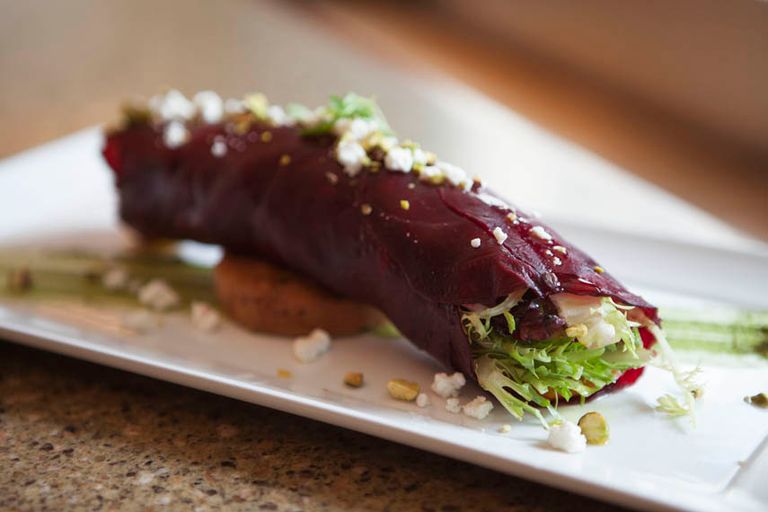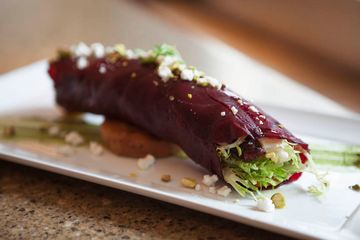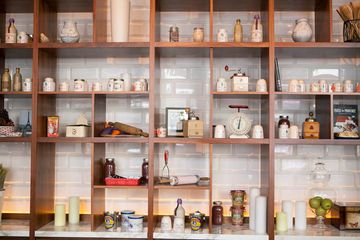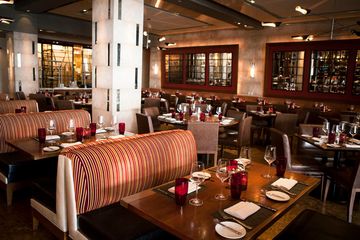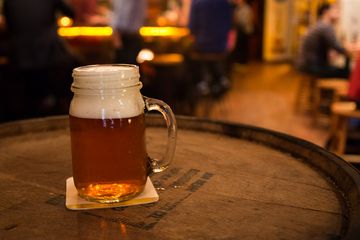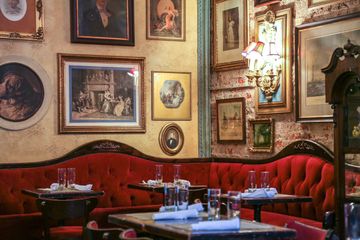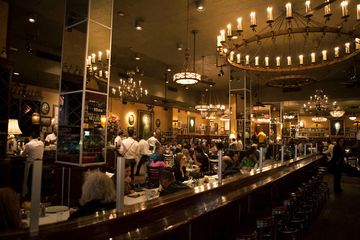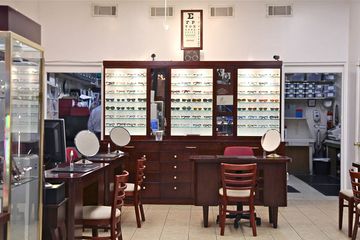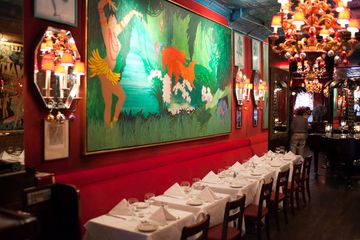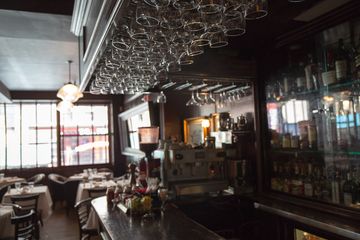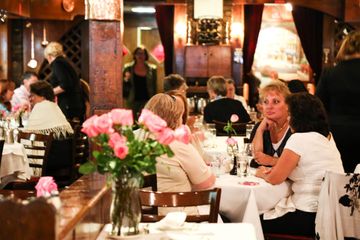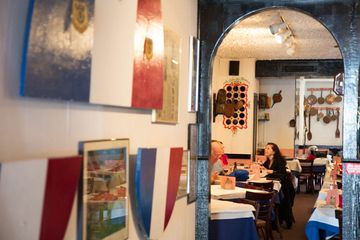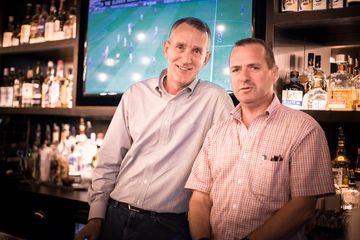Beer Culture opened in the summer of 2013, offering beer, cider, whiskey, and bottled sodas. Customers can come in to pick up a bottle – or growler - of beer to take home, or grab a seat at the bar to chat with the friendly staff while noshing on some charcuterie. The record player behind the bar is usually going and if the owner, Matt Gebhard, and bar manager, Peter Malfatti, are around, they are bound to strike up a conversation and offer to guide patrons through their extensive beer selection. The beers are organized by region. The first door of their huge, glass-front fridge is full of beers from New York State, while the second is full of east coast beers, and the third and fourth is full of central and west coast beers. A bit further back into the room is their international fridge, proudly boasting selections from the UK, France, and three shelves worth of Belgian beers. For patrons who just want a nice, cold, familiar beer, grandpa's fridge is the place to go. Customers often mistake the old Kelvinator across from the bar as a prop and are always surprised when they open it up and realize that it works and that they recognize all of the brands inside of it. Matt included grandpa's fridge because he thinks that there is a place for all beers (except lite ones, which are not sold on the Beer Culture premises) and that some brands hold emotional value for customers. True to its name, the beers in the old Kelvinator are those that Matt had seen in his own grandfather's fridge growing up. Matt's first true exposure to beer and its culture was during a year he spent studying abroad in Belgium. When he came back home to upstate NY, Matt was nineteen and decided to pursue his newfound passion by working in a local Belgian brewery. He remained here for a few years until he met Peter, his future bar manager, who was living in Rochester, NY. Before opening their own place, Matt came to Manhattan and worked in a Belgian bar in Midtown. Although he enjoyed it, Matt told us that he wanted to do things his own way and fulfill his vision of what a bar should be. The bar that these two terrific guys opened is one that is dedicated to the simple, comfortable and unpretentious beverage that they adore. Nestled between Eighth and Ninth Avenue in a residential part of 45th Street, Beer Culture, is a hybrid bar and bottle shop offering its customers over 500 different types of beer. Although at the time of this write-up, Beer Culture had been around for less than a year, both Matt and Peter already feel like part of the block. As Matt stated, "We pride ourselves in being an establishment of beer nerds, not beer snobs. "
